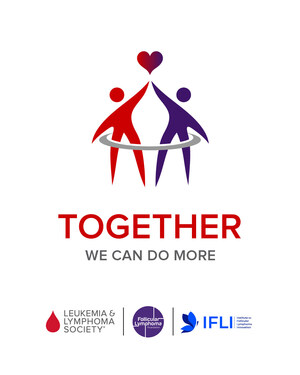The Leukemia & Lymphoma Society Awards $12.6 Million in Research Grants in Six Critical Areas of Unmet Medical Need
WHITE PLAINS, N.Y., Jan. 6, 2014 /PRNewswire/ -- The Leukemia & Lymphoma Society (LLS) has awarded 21 new grants representing a total investment of $12.6 million to tackle six areas of high unmet medical need in the blood cancers.
In response to requests for proposals (RFPs) from researchers in these six critical areas, LLS has awarded these grants under its Translational Research Program (TRP), an initiative designed to help accelerate the movement of promising discoveries from the lab to the clinic. Each grant is for a three-year duration with a total value of $600,000.
The RFPs mark LLS's proactive approach to addressing the challenge of improving outcomes for cancer patients with particularly urgent needs. The focus of the TRP grants, and the grant recipients are as follows:
- New immunotherapeutics for patients with acute myelogenous leukemia (AML):
- David Avigan, M.D., Beth Israel Deaconess Medical Center. Clinical trial evaluating DC/AML fusion vaccine with PD1 blockade
- Stephen Forman, M.D., Beckman Research Institute of the City of Hope. Adoptive therapy for AML using CAR123-transduced T cells
- Dean Lee, M.D., Ph.D., University of Texas MD Anderson Cancer Center. Targeting NK cell immunotherapy against AML stem cells.
- Ulrich Steidl, M.D., Ph.D., Albert Einstein College of Medicine of Yeshiva University. Targeting IL-1 receptor accessory protein in malignant stem cells in AML
- Chengcheng Zhang, Ph.D., UT Southwestern Medical Center. Blocking immune inhibitory receptor LAIR1 for AML treatment
- Novel therapeutics for patients with non-cutaneous T-cell malignancies:
- Thomas Loughran, M.D., The Pennsylvania State University College of Medicine. Targeting JAK/STAT and NF-kB pathways in large granular lymphocytic leukemia
- David Wiest, Ph.D., Fox Chase Cancer Center, Role of ER stress responses in pathogenesis and treatment of T-cell acute lymphocytic leukemia
- Javeed Iqbal, Ph.D., Board of Regents of the University of Nebraska Medical Center. Somatic mutations and epimutations in peripheral T-cell lymphoma
- Introduction of novel agents in the treatment of patients with diffuse large B-cell lymphom(DLBCL) and mantle cell lymphoma(MCL):
- Robert Baiocchi, M.D., Ph.D., The Ohio State University Research Foundation. Targeting PRMT5 expression in DLBCL and MCL
- Leandro Cerchietti, M.D., Joan & Sanford I. Weill Cornell Medical College of Cornell University. EIF4E targeted therapy in lymphomas
- Ari Melnick, M.D., Joan & Sanford I. Weill Cornell Medical College of Cornell University. Rational translational of EZH2 targeted therapy
- Alessandra Pernis, M.D., The Hospital for Special Surgery. Novel signaling pathways in DLBCL
- James Rubenstein, M.D., Ph.D., The Regents of the University of California, San Francisco. Molecular targets for high-risk primary CNS lymphoma
- John Timmerman, M.D., The Regents of the University of California, Los Angeles. PD-1/PD-L1 blockade plus kinase inhibitor therapies for B cell lymphomas
- Therapies for patients with myelodysplastic syndromes(MDS) who have failed hypomethylating agents:
- Maria Figueroa, M.D., University of Michigan Health System, Epigenetic markers of sensitivity and resistance to hypomethylating agents
- Maria Figueroa, M.D., University of Michigan Health System, Epigenetic markers of sensitivity and resistance to hypomethylating agents
- Therapies for new targets such as bromodomains, methylation and other epigenetic approaches for patients with high-risk myeloma:
- Xiu-Bao Chang, Ph.D., Mayo Clinic Arizona. Immunomodulatory drugs target cereblon and its downstream substrates
- Constantine Mitsiades, M.D., Ph.D., Dana-Farber Cancer Institute. Individualizing myeloma treatment with BET bromodomain inhibitors
- Research that addresses long-term and late effects of blood cancer therapies:
- Mukta Arora, M.D., Regents of the University of Minnesota, Twin Cities. Biomarkers of frailty and its impact on geriatric HSCT outcomes
- Seth Corey, M.D., Northwestern University – Chicago campus. Development of an oral anti-fibrotic drug for patients with myelofibrosis
- Patricia Gallagher, Ph.D., Wake Forest University Health Sciences. Prevention of doxorubicin-induced cardiotoxic late effects by Ang-(1-7)
- Matthew Matasar, M.D., Memorial Sloan-Kettering Cancer Center. Tissue and functional assessment of myocardial injury in HL survivors
LLS also announced the awarding of an additional 20 TRP grants not related to the RFPs, totaling $11.4 million, to scientists working in other areas of blood cancer research.
"The translation of research discoveries in the laboratory to the patient's bedside for the treatment of blood cancer is a central part of the mission of LLS," said Lee Greenberger, Ph.D., LLS chief scientific officer. "By taking a strategic, proactive approach, LLS is directing grant funds with the intent to accelerate the advancement of breakthrough therapies and provide the best quality of life for our patients."
About The Leukemia & Lymphoma Society
The Leukemia & Lymphoma Society ® (LLS) is the world's largest voluntary health agency dedicated to blood cancer. The LLS mission: Cure leukemia, lymphoma, multiple myeloma, and improve the quality of life of patients and their families. LLS funds lifesaving blood cancer research around the world, provides free information and support services, and is the voice for all blood cancer patients seeking access to quality, affordable, coordinated care.
Founded in 1949 and headquartered in White Plains, NY, LLS has chapters throughout the United States and Canada. To learn more, visit www.LLS.org. Patients should contact the Information Resource Center at (800) 955-4572, Monday through Friday, 9 a.m. to 6 p.m. ET.
Contact: Andrea Greif
(914) 821-8958
[email protected]
www.LLS.org
SOURCE The Leukemia & Lymphoma Society
WANT YOUR COMPANY'S NEWS FEATURED ON PRNEWSWIRE.COM?
Newsrooms &
Influencers
Digital Media
Outlets
Journalists
Opted In




Share this article